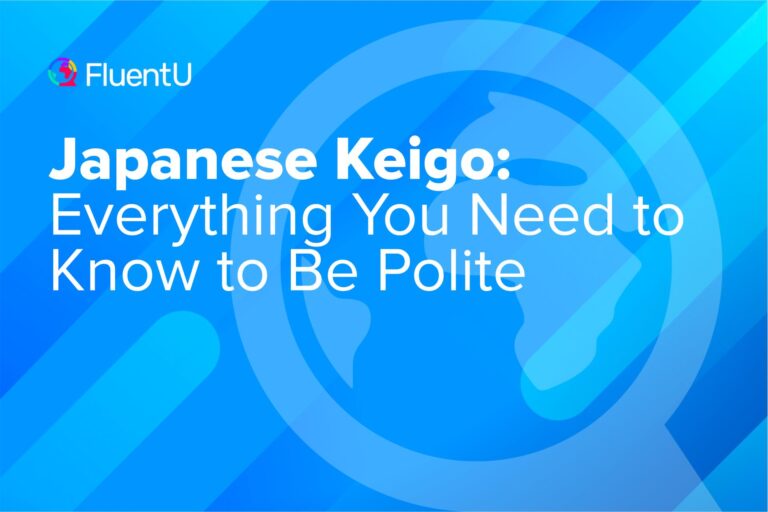38 Weird Japanese Words You Won’t Find in Textbooks

Have you ever heard of the English word “petrichor,” which means “the smell of the earth after it rains?”
What about “backpfeifengesicht”, the weird German word that means “a face badly in need of a fist?”
Ever since I learned that these words exist, I’ve been fascinated by what other cultures deem necessary to express in a similar fashion.
The Japanese language is no different. As you’ll see below, it’s rich in words and phrases that are funny, weird or will make you say “what the [expletive]?”
Download: This blog post is available as a convenient and portable PDF that you can take anywhere. Click here to get a copy. (Download)
People
教育ママ ( きょういく まま ) — Mother obsessed with her children’s education
You could say this is the Japanese equivalent of a “helicopter parent.”
バーコード人 ( ばーこーど じん ) — Barcode men
“Barcode men” refers to men who have ridiculous comb-overs—likely referring to what these comb-overs often look like.
KY (a.k.a. 空気読めない or くうき よめない ) — Cannot “read the room”
KY is shorthand for kuuki yomenai. The phrase literally translates to “cannot read the air/atmosphere.” It refers to a person who does something wrong and is completely oblivious to it, but everyone else in the room knows about the wrongdoing.
For example, a guy who happily talks about his new girlfriend in front of a friend who just broke up with his is KY, as is someone who says something insensitive at a party and continues on with their barrage of tactless remarks in front of a silent (and flabbergasted) audience.
別腹 ( べつばら ) — Extra stomach
This means having room for dessert despite being full, making it seem like the person in question has more than one stomach.
キープ君 ( きーぷくん ) — “Keep-kun”
This refers to a boyfriend who is “kept” until someone better shows up. (Poor guy!)
クリスマスケーキ (くりすます けーき) — Christmas cake
No, this isn’t a Christmas dessert unique to Japan. A “Christmas cake” is a woman not yet married by 25, as she is said to lose her value after her 25th year.
Behavior
蛇足 ( だそく ) — Snake legs
This refers to something unnecessary and probably detrimental like snake legs. After all, snakes can already get by without legs, so why would they need those?
横飯 ( よこめし ) — Horizontal rice
If you think this is yet another out-of-this-world Japanese food like square watermelons, you’ll be sorely disappointed. The meaning is much more mundane—that is, 横飯 simply refers to Western food.
積ん読 ( つんどく ) — Leaving a book unread after buying it
As a bookworm, I’m guilty of this a lot of the time. And judging by the book memes all over social media, I’m not alone!
過労死 ( かろうし ) — Death from overworking
This is an unfortunate side effect of Japan’s infamously long work hours. You’ll find plenty of think pieces online about how it’s a cautionary tale for companies all over the world, like this one.
口寂しい ( くちさびしい ) — Lonely mouth
This refers to those times when you’re not hungry but you still eat.
Uターン現象 ( ゆーたーんげんしょう ) — U-turn phenomenon
This is the movement of people who grow up in a rural area, escape to the city for education or work and then return to where they came from.
辻斬り ( つじぎり ) — “Tsujigiri”
This refers to the common samurai practice of breaking in a new sword by attacking—and potentially killing—a complete stranger.
Given that samurai and Japanese swords now only exist in jidaigeki (period dramas), you won’t hear this word bandied about as much these days.
Cat Words
猫舌 ( ねこじた ) — Cat tongue
If you’re the type who’s particularly sensitive to hot drinks or spicy food, you’re said to have a “cat tongue.”
猫娘 ( ねこむすめ ) — Cat girl
Now this is one of the more straightforward words on this list! As the translation suggests, it refers to a girl who acts like a cat. You’ll often hear this word in anime featuring cute girls.
猫背 ( ねこぜ ) — Cat back
A “cat back” is simply the Japanese term for “hunchback.” (Hey, “The Cat Back of Notre Dame” sounds much better, doesn’t it?)
猫に小判 ( ねこに こばん ) — Gold coins to a cat
When you give a gift to someone who is incapable of appreciating it, the incident is likened to giving gold coins to a cat. (To be fair, what would cats even do with gold coins?)
猫かぶり ( ねこかぶり ) — Cat veil
If English has “wolf in sheep’s clothing,” Japanese has “cat veil.” It usually refers to someone who feigns naiveté or pretends to be nicer than they really are.
猫糞 ( ねこばば ) — Cat excrement
I have to say: using “cat excrement” to refer to embezzlement, misappropriation or stealing is a creative (and hilarious!) way to drive home just how serious a crime it is.
Wasei Eigo – False Friends
ハイテンション (はい てんしょん) — High tension
Despite the usual negative connotation of “tension,” this phrase actually means someone who is full of energy and enthusiasm.
バイキング (ばいきんぐ) — Viking
“Viking” refers to a restaurant that allows unlimited refills from their buffet tables.
ドクターストップ (どくたー すとっぷ) — Doctor stop
When a physician instructs you to take it easy, that is an example of dokutaa sutoppu.
パラサイトシングル (ぱらさいと しんぐる) — Parasite single
This is as unflattering as it sounds. It refers to an adult who is capable of living on their own, but prefers to stay with their parents.
ノミュニケーション (のみゅにけーしょん) — “Nomyunication”
This is a portmanteau of the Japanese word for drink (nomu) and the English word “communication.” It means talking while drinking—a type of multitasking, basically.
オーバードクター (おーばー どくたー) — Over doctor
An “over doctor” is someone who has a Ph.D. but remains unemployed. (Imagine how parents feel about adult children who are this and are also “parasite single.”)
マッチポンプ (まっち ぽんぷ) — “Macchi ponpu”
A “macchi ponpu” is someone who starts trouble just to make themselves the hero by trying to fix that same problem. The very negative connotations of this aside, you can’t deny it’s fun to say!
Beauty
木漏れ日 ( こもれび ) — When sunlight filters through the trees
Does English have an equivalent for this? I think not.
物の哀れ ( もののあわれ ) — “Mono no aware”
Mono no aware is a phrase that isn’t easy to translate into English. It roughly means the awareness of the impermanence of beauty. You’ll often hear this used in art critiques.
バックシャン (ばっくしゃん) — “Bakkushan”
A bakkushan is a woman who is beautiful only when viewed from behind. (I’ll admit, this is a bit more crass than the first two.)
幽玄 ( ゆうげん ) — “Yuugen”
The definition of this term varies depending on the context, but it generally refers to a mysterious sense of the beauty or nature of the universe.
Not Taken So Literally
夏炉冬扇 (かろとうせん) — Summer heater, winter fan
You use this to describe something that is out of season and worthless—like a heater in summer and a fan in winter.
花鳥風月 ( かちょうふうげつ ) — Flower, bird, wind, moon
This is another weird Japanese phrase that has a straightforward meaning. As you might’ve guessed, it’s used to list some aspects of nature.
三日坊主 ( みっかぼうず ) — Three-day monk
A “three-day monk” is someone who gives up prematurely—much like a monk who throws away his holy robes after three days.
天下り ( あまくだり ) — Descent from heaven
Although this is a dated term in Japanese, it’s all too common in American politics. It refers to politicians who leave office, only to accept offers as high-paying executives in the corporate world.
頭寒足熱 ( ずかんそくねつ ) — Cold head, warm feet
This term refers to the fact that most Japanese homes are not properly heated in the wintertime, and one of the ways families stay warm is to put their feet by the こたつ (a knee-high table with an electric foot-warmer underneath the board which is used with a coverlet during winter) and leaving their heads out in the cold.
Untranslatable Phrases
ありがた迷惑 ( ありがためいわく )
Okay, brace yourselves: this is going to be a long one.
Imagine someone offers to do something for you that you don’t want them to do, but they do it anyway. Then, their earnest (if misguided) efforts lead to an entire comedy of errors that cause you a lot of trouble, but you have to thank them anyway because it’s the socially acceptable thing to do.
That, in a (humongous) nutshell, is ありがた迷惑.
侘寂 ( わびさび )
侘寂 is a comprehensive Japanese worldview or aesthetic centered on the acceptance of transience. Although that’s a definition of sorts, this word is often considered untranslatable.
無礼講 ( ぶれいこう )
無礼講 refers to a context (usually an informal event like a party or drinking session) where there’s no distinction of status and where one can speak and act freely without pressure from others.
How to Learn More Weird Japanese Words
Language is constantly evolving, especially slang and novel vocabulary in the modern world. In Japanese, katakana words borrowed from English or other languages are common.
The best way to pick up Japanese slang and other weird words is to watch modern content straight from Japan. When you watch the latest dramas or commercials, you can listen to and learn how to use colloquialisms as naturally as the natives do.
One resource where you can watch native media is FluentU.
FluentU takes authentic videos—like music videos, movie trailers, news and inspiring talks—and turns them into personalized language learning lessons.
You can try FluentU for free for 2 weeks. Check out the website or download the iOS app or Android app.
P.S. Click here to take advantage of our current sale! (Expires at the end of this month.)

The platform not only allows you to practice new Japanese words through videos, but learn about popular culture as well.
So, what are you waiting for? It’s time to start developing an incredible Japanese vocabulary!
And One More Thing...
If you love learning Japanese with authentic materials, then I should also tell you more about FluentU.
FluentU naturally and gradually eases you into learning Japanese language and culture. You'll learn real Japanese as it's spoken in real life.
FluentU has a broad range of contemporary videos as you'll see below:

FluentU makes these native Japanese videos approachable through interactive transcripts. Tap on any word to look it up instantly.

All definitions have multiple examples, and they're written for Japanese learners like you. Tap to add words you'd like to review to a vocab list.

And FluentU has a learn mode which turns every video into a language learning lesson. You can always swipe left or right to see more examples.

The best part? FluentU keeps track of your vocabulary, and gives you extra practice with difficult words. It'll even remind you when it’s time to review what you’ve learned. You'll have a 100% personalized experience.
Start using the FluentU website on your computer or tablet or, better yet, download the FluentU app from the iTunes or Google Play store. Click here to take advantage of our current sale! (Expires at the end of this month.)
Download: This blog post is available as a convenient and portable PDF that you can take anywhere. Click here to get a copy. (Download)







